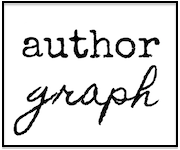So, NORA, which I wrote a little about here, ended up being an absolutely gorgeous film — totally inventive, wholly original, told completely through dance. Honestly, I see A LOT of films and this was one of the most brilliant. It’s not long — only about half the length of a regular film (it’s showing at the NYAfrican Film Festival along with two other shortish films), and I so wish the filmmakers (Alla Kovgan and David Hinton) would have gone farther to tell more of her life. Hopefully they will someday.
Dancer Nora Chipaumire was born and raised in Zimbabwe (then Rhodesia), and moved to the U.S. in 1989, at age 24. Through the film she reenacts solely through movement (along with, silent-film-style, a few intermittent words on a black screen) her childhood — her dear father of whom she has few memories who was banished from the family via court order by her mother’s divorce petition, difficulties with her overbearing mother who didn’t shy away from physical abuse, her first sexual experience, falling in love, being the victim of an attempted rape, becoming involved in revolutionary activities during college, etc. She dances all parts — including that of her father and other men. (A male dancer, Souleymane Badolo, brilliantly dances the part of the court marshal with his marching legs, lifted high at the knee, coming to banish the father from the family, in one of my favorite scenes.)
The story is, obviously, very expressionistic, and Chipaumire can be quite humorous when she wants to be. In another of my favorite parts, the between-scene words on the black screen tell us that when Chipaumire was a child, her mother got a job working for a British export company. Her mother soon became smitten with all things White — white soap, white clothes, white culture basically. In the following scene, Chipaumire plays an English school teacher. To her class of Zimbabwean children, she holds up a tube of bright white Colgate toothpaste. “Colgate,” she pronounces, proudly enunciating each syllable. “Colgate,” her students say all in unison, equally proud to learn. Then, everyone squirts stark white paste out of their tubes, begins scrubbing their teeth, merrily merrily merrily. White suds roll down their chins, the white making a stark contrast with their skin. Messy as they’re getting, everyone is thrilled to be dressed in this gooey white paste. Everyone then spits bright white, milk-like liquid into their little bins and flashes to the camera their shiny white sparkling teeth, silly, hilariously phony smiles pasted over their little faces.
Immediately following this, Chipaumire transforms from her mother to her adult self — maybe, or maybe it is still her mother, but in the form of her authentic self — and stands in the school hallway, breaking into a version of the dance, Dark Swan, that I saw her do at Jacob’s Pillow (keep clicking ‘next,’ to see more pics), where she she scrubs her head, face, and upper body furiously, as if trying to get something off of her, before performing her own, beautiful African-based adagio to Saint Saens Dying Swan.
I’d loved the dance when I saw it at JP and loved it more seeing it in the context of the movie.
I think the film was made between the US, the UK, and Mozambique, rather than Zimbabwe, but the scenes of Africa are gorgeous. So rich and full of color — the clothing, the land, the dirt, the trees, the buildings, everything. Chipaumire is such a stunning presence, kind of like Grace Jones but far more artistic. She is such a beautiful, strong, powerful woman. And her dancing and choreography are astounding. The audience went wild with applause during the credits when the words “all choreography by Nora Chipaumire” rolled down the screen. Someone shouted, “Bravo.” And others echoed, “Yes, yes!” I got the sense most of the crowd was not a dance audience (where were all the dance on camera peeps, I wondered????) I wanted to shout out to these people, “Yes, see, dance is really really cool. If only you all would come to a couple performances!”
If you’re in New York, you have another chance to see it: Tuesday, April 14th at 2:40 pm at the Walter Reade Theater at Lincoln Center. Go here for more details on the festival, and here to read more about this gorgeous film and to see some clips. It looks like it’s playing as part of other African film festivals, so hopefully more people around the country and around the world will have the chance to see it.






